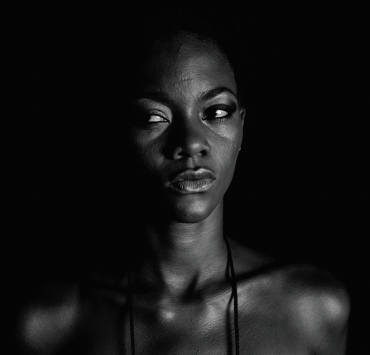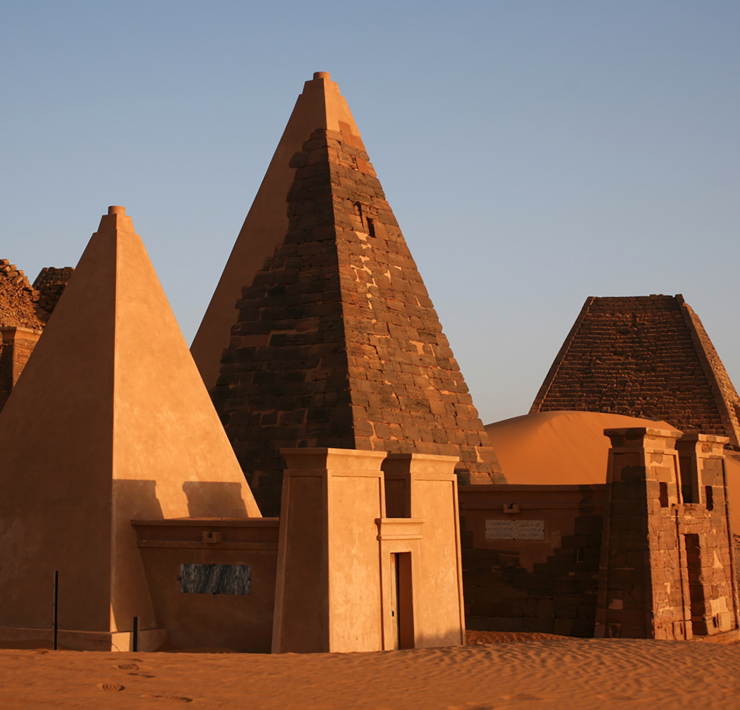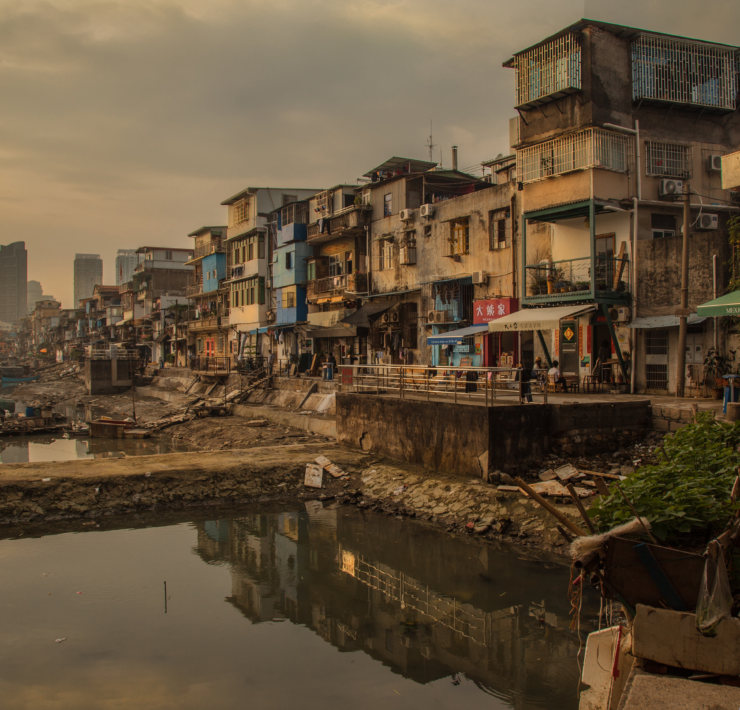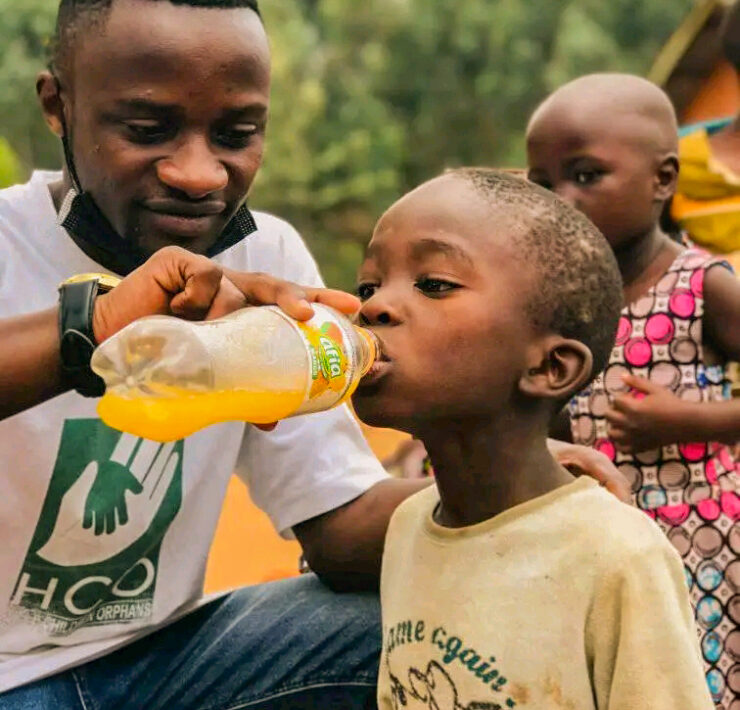Arts Personality
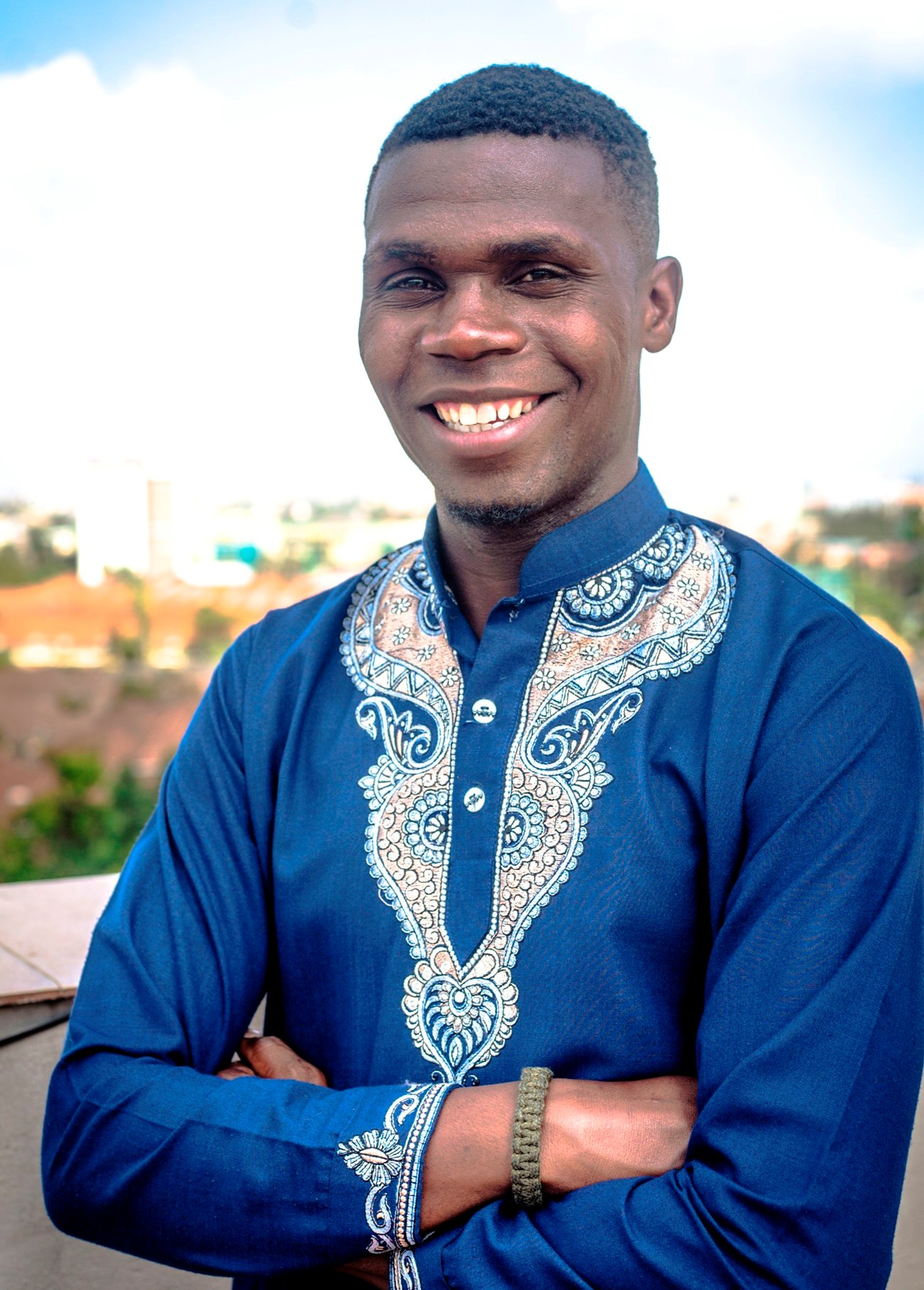
Passionate about getting God's message concerning Afrika and the end…
BRIAN “YASSIN” BWIRE
PHOTOGRAPHER/CINEMATOGRAPHER CO-FOUNDER SHUTTERFILMFOUNDATION
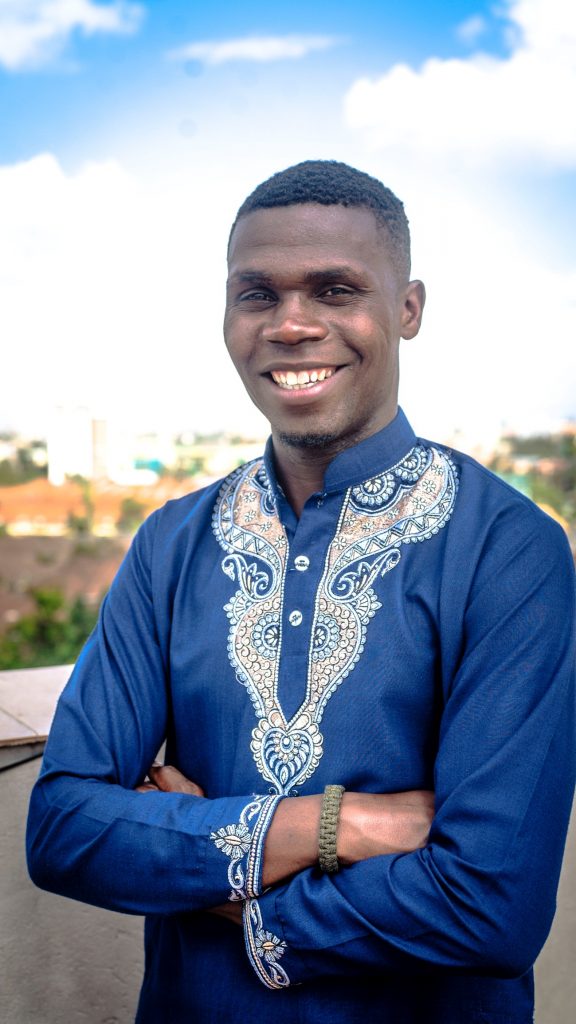
24 year old Brian (Yassin) Bwire is practicing the art of responsibility. Having seen firsthand the effects of not taking care of one’s brother or sister, he set out to establish a safe space in Kibra (formerly known as Kibera), where youth can find new hope and direction in life. He is also working on a project to help get the Nubian community in Kenya recognized as a Kenyan tribe, by documenting their culture and stories to help bridge gaps in understanding and create brotherhood. He says, “I believe holding each other’s hands will take us far.”
Please tell us about yourself
My name is Yassin Bwire; I’m a film maker and photographer. Born, raised and living in Kibra, I attended training immediately after high school in 2014 at a film institute called Filamu Juani. I later graduated to join a company under the same institute known as Zindua. Filamu Juani and Zindua are where I learnt the skills that I have today. I found the process of training that I was undertaking to be one that would be beneficial for people in the slum and I knew I wanted to open a film school in Kibra to help the youth in the slum engage in positive activities.
I worked on some film projects and was doing odd jobs to keep myself busy and in the process, some of my friends started to ask me to show them how to operate a camera. I didn’t have the equipment or time to do it, but one guy I turned away was later killed because of his involvement in crime. I blamed myself. I wish I could have spared time for him, to be able to keep him on the right track. It was something that haunted me each and every day and I came to realize that this is something that needs to be addressed. We need to be responsible for our very young brothers and sisters. If they admire whatever you’re doing and they want to be there with you and they want you to teach them; it’s your responsibility to do so.
Eventually I convinced a friend of mine to set up a film production company, but along the way I made some choices that cost me my relationship with Zindua, which I regretted very much. Later I found out that my partner in the production company was trying to cheat me out of money, so I stepped away from that company and from film and photography altogether. I decided to focus on playing soccer. I was supposed to join PSG Under21, but I had an injury, so I was out.
Please tell us about ShutterfilmFoundation, when it was founded and why it was founded
On August 22nd 2018, Hashim Mustafah Aljab, my co-founder and I decided to open a film school that would benefit the whole community. What motivated me to do this was in 2016, in a period of 8 months, 112 youths lost their lives in Kibra; five of them were young girls. They were shot dead in a crime sweep. We have a high rate of unemployment, drug use, we have a big number of school dropouts due to lack of school fees and we have so many girls getting pregnant, some of them while still in primary school. Why? Young girls who are looking for a way to get sanitary towels tend to be drawn to young boys who have money, but these boys are getting money through crime. It was sad to see 20 or 30 people who I knew by name who were suddenly no more. That’s why at ShutterfilmFoundation we decided we were taking anyone in, whether they were school dropouts or whether they stopped at Class 8.
The skills we teach are technical skills that they can use; photography and film making. We managed to train at least 70 youths in a period of one year. We’re just trying to help them understand that life is not just about going to school and that even if they fail, their lives aren’t over; they can still do something that can change their lives. We tell them that failing school should not be the reason to get involved in crime and other negative things in their community; that they need to be in a position where they can use their skill to bring something home to their families.
They say to themselves that if they take a photo of a child who is playing near a huge mound of trash, the photo will sell. Now they have put this face out in the world that Kibra is a very dirty place.
Brian “Yassin” Bwire
Once they leave, what happens?
They don’t leave. With each successive cohort we are getting people who are genuinely interested in the craft, not just coming for the sake of it. These cohorts stick together and work together to create projects and they also attend subsequent training sessions. We have a student on internship at one of the TV stations; we are hoping he gets a job. Most of our students have attended a film master class with Robert Munuku and others are called on set with Imor (of Artivhub) to gain some experience.
Our students haven’t been paying a fee but we want to find a way to sustain the small projects for the students and now in our application form we say our commitment fee is KES 2500 (US$ 25) which is payable in installments, because after every cohort we go on a retreat with them to see what they have gained in the three month sessions. We also want them to understand that they have paid for it and therefore to value it. Our aim, long term, is to bring them to the stage where they can do their own film projects.
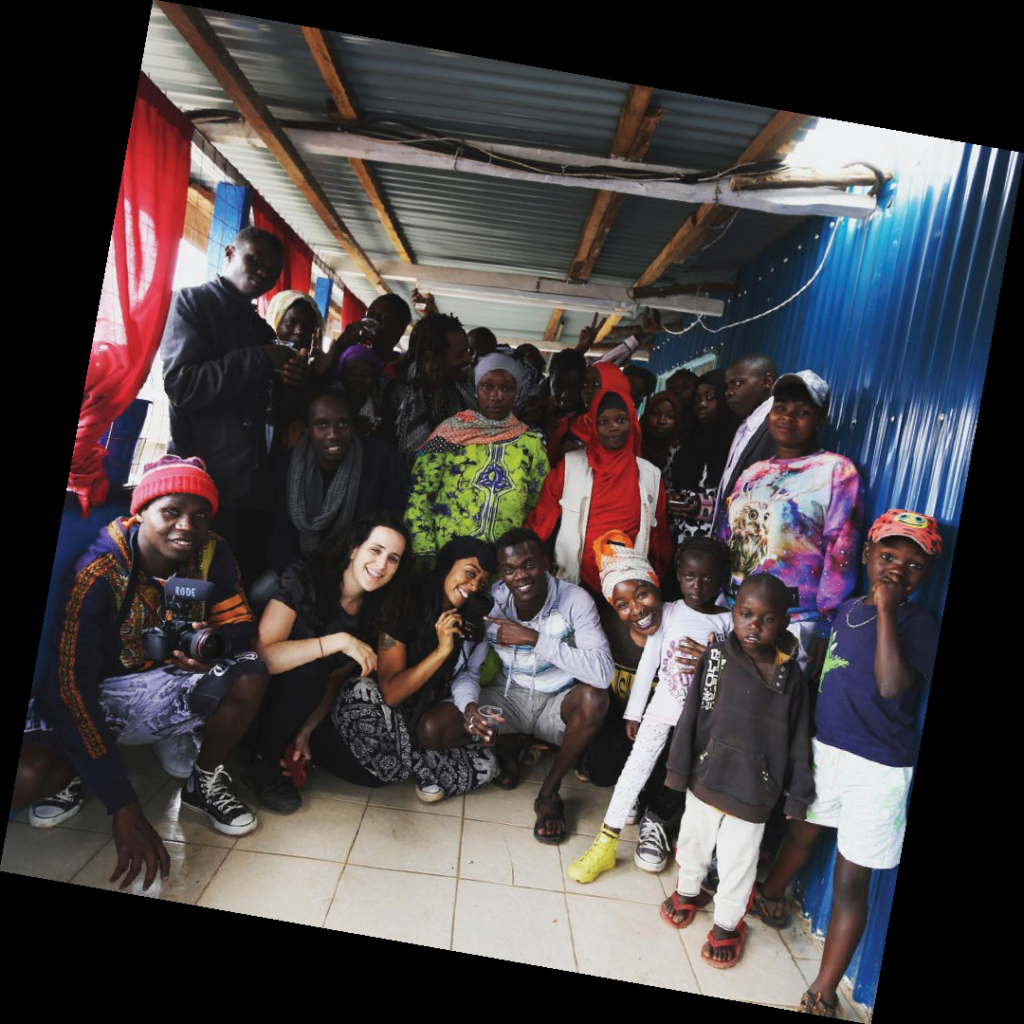
How do you fund it?
Most of the time I get some small contracts and the little that I get goes towards sustaining ShutterfilmFoundation, while other funds go towards meeting personal needs. Our friends also support us from time to time. Sometimes I go knocking on doors to ask for financial support.
Our purpose, mainly, is to be able to train Afrikan youths to be able to tell our own stories. There have been many documentaries made about Kibra, but they never tell positive stories, they always focus on negative things. Trust me, crime is everywhere in the world, poverty is everywhere; lack of hygiene is everywhere. This is a global problem. You can’t just say Kibra is a dirty place. The problem is that when people come to Kenya they are usually taken to a very specific part of Kibra. Kibra is very big and encompasses a lot of areas. Why just come to a certain village and say that’s Kibra? That was a problem for artists who came before me as well. For the photographers in Kibra it’s all about business. They don’t think about the community. They say to themselves that if they take a photo of a child who is playing near a huge mound of trash, the photo will sell. Now they have put this face out in the world that Kibra is a very dirty place. I’ve had some friends who come and they say they want to tour Kibra, so I take them to my village and they say this is not the Kibra that everyone knows. So I take them to the place that people are usually taken to and say to them, this is also Kibra – the difference is the standard of living and sometimes that standard is a choice.
The other big problem we face is in terms of artists’ self-interest; some see a growing photographer, and then try to kill his dreams, wanting to be the only photographer in the area, it’s all about self-interest. Most photographers in Kibra hate competition, but it’s not about competition it’s about today I’m alive, tomorrow I might not be there. No one is guaranteed tomorrow. You as a photographer, when you die, what will you have left? Will you have mentored someone who can fill your position? That’s the mentality lacking in most artists in our slum.
There is also a film school in Kibra that’s charging KES 9500 (US$ 95) per month, in a slum. Will a parent who earns maybe KES 20,000 (US$200) be able to pay his or her rent and also pay fees for his child? They’re making things too expensive for the youth in Kibra to afford, so they can’t rise up.
There’s been a lot of funding from overseas for Kibra, what do you think the problem is, because it’s like the funding does not reflect in the place?
I read some statistics that were saying we have about five hundred and eleven organizations in Kibra alone. That means this is a business. To me, there’s no country that can grow or can sustain itself through donors. There are some organizations that are in Kibra that are doing nothing. Kibra is a hub for some greedy individuals to earn from. The international media also benefit in some ways. In 2013, there was a crisis in Kibra, there was an international pressman who gave a citizen money to go and buy petrol to start a fire so that they could get a story to tell outside there. Akon said, ‘It’s a responsibility for young Afrikans to be able to tell their own stories. Young filmmakers in Afrika need to create content and tell their own stories not European stories.’
But do the youth in Kibra know who they are?
They haven’t understood. They know they are Afrikans but for them, I don’t think it means anything, though for a few people, it means a lot. That’s the biggest responsibility of art, to make sure we create an environment whereby, a filmmaker can tell our own stories. In Kibra every day, trust me if you’re a filmmaker you can be able to tell great stories.
How do you tell a great story if you don’t know who you are?
Exactly! That means we need to mentor more people in order for the youth to be able to understand themselves, because the future is the youth. If they don’t understand themselves, what do you expect? You can expect to have the same reputation.
You can’t tell someone from Kibra to go to a university and attend a course that costs KES 200,000 (US$2,000). That’s why at ShutterfilmFoundation we say we welcome everyone. We help them understand the purpose of art and their responsibility as youth. We say to them, ‘We still celebrate our freedom fighters today, but we are forgetting one thing, they played their part, you also need to play your part. You have questions to answer for the coming generation’s lives. They will ask you, “What did you do to protect us from whatever we are facing in our current situation?”’
No one is teaching the youth, that’s why when elections nonsense comes around they go to the youth and exploit them.
They go to the youth, pay them KES 200 (US$ 2) buy them drugs, they become wild. We need to create an environment that is friendly to everyone.
What has been the input of the government itself?
All I can say is our late MP did something that was so great. He was emphasizing on education, building infrastructure and schools. But for the MCAs it’s a big mess, it’s a platform for someone to earn a living and escape from poverty. That’s why in Kibra over the weekends you can see a 12-16 year old girl out the whole night, walking with young boys and going for some parties. That means that’s a very big disaster ahead. There’s this trend in Kibra of teenage prostitution but people are not seeing that. We are in a situation whereby the government has frustrated the parents to a point where they just think of how they can get money, pay rent and buy food. They are not thinking of how they can mold their daughter or son to be someone important in this community. We are in a system where we struggle to survive. You don’t live to live, you just live to survive.
What do you think are the solutions to the problems in Kibra?
The government should think first of the most important things that its citizens should get. You can be employed, but at the end of the day you end up in the bar. We need to create initiatives that are training the youth and molding children from school and guiding them – providing basic information they need. These technical skills are things we are supposed to identify in primary schools. I believe, if we stop ignoring these issues that will be the turning point of bringing in change for Kibra. For the young girls, we need to teach the parents how to live with their children. We need to start an initiative where people gather together and speak about their lives. Once you speak then you’re in a position to make things right. Once you don’t speak, you get frustrated, you’re then in a position to do something negative.
Tell us about the Nubian Project.
We are Afrikans and we have Afrikans all over the world, some of whom have never stepped into Afrika or don’t know their origin. You can find someone in the UK calling themselves a Nubian, but they don’t know their origin. The Nubians have been scattered everywhere in East Africa, West Africa and Chad. Kenyan Nubians were fighters for the British; that’s how they came to this country. After the war, they remained in Kenya in the area called Kibra which was a forest. Kibra means ‘forest’. The Nubians, historically, didn’t live alone. They welcomed people and always lived in towns. Living together with others was one of their ways of being able to survive. At the time Kibra was a very large area, so they welcomed people from many communities to live with them.
Some people say to or about them that they are from Sudan and they need to go back to Sudan, yet other communities are being recognized as Kenyans. We are all Afrikans. Bantus are from the Congo but we don’t tell them to go back to the Congo. The Nubians have lived here for more than 100 years; they have a right to be recognized.

I wanted to tell their story and I started by searching for Nubian history online, but what I found was shallow. It’s not a history that is written by the Nubians themselves or an Afrikan. That’s when I decided to create this project. It is meant to create a platform where Afrikans all over the world can know their origins; particularly for people who really understand the importance of knowing their background as a key to understanding who they are and where they’re from. That was our purpose in trying to do this and we decided to start with the Nubian people, who have such a rich history. We want them to be recognized as a Kenyan tribe.
The first phase of the Nubian project involves photography and documentation of historical information about them. We are working directly with the local Nubian community, speaking with elders, finding out about their culture, food, clothing and other aspects so that we can share this with the world. Eventually, we would like to do a massive film project that traces their journey from Ancient Egypt to the present day. That’s something that will come in time.
Find them at: www.shutterfilmfoundation.co.ke
What's Your Reaction?
Passionate about getting God's message concerning Afrika and the end times to the world, in order to heal, restore and rebirth Afrika to her true purpose and destiny in God.









